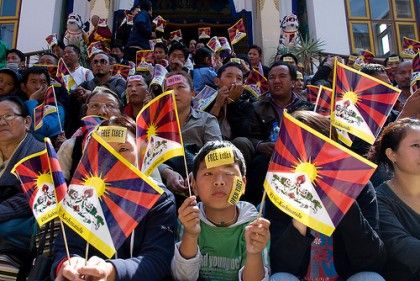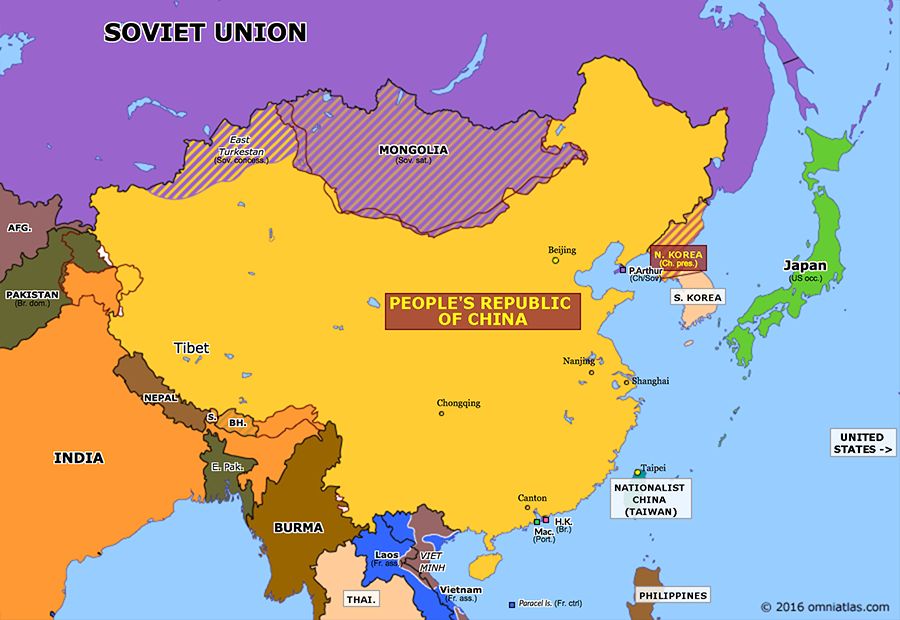Tibet- An Independent Country?
Apr 11, 2019 • 63 views
'TIBET' arouses a trail of pictures and thoughts ranging from massive mountain peaks to Buddhist monks, picturesque valleys, meditation and great monastries. But more lies beneath what is perceived by the world. An unpleasant atmosphere continues to engulf the plateau as China continues to clench its governance over Tibet. The dispute following the illegal proclamation on the Tibetan land is no novelty in the story. It dates back to the the year 1949 when china first invaded and tried to gain control over the territory. Tibet was a part of China about 700 years ago under the regime of a Mongol ruler Kublai Khan of Yuan dynasty. One of the facts China still holds on to claim Tibet as its territory. The pretence under which the People’s Republic of China invaded Tibet was to protect it from the intrusion by the western and external forces. Ironical, right?
Seventeen point agreement is the most crucial treaty signed between Tibet’s local government and the Central people’s government, in 1951. The agreement ensured exercising autonomy over a part of Tibet and preserving Tibetan culture, faith, tradition, language, religious beliefs under the sovereignty of China.The Chinese troops were led in within an assurance of not interfering within the political system or the powers of Dalai Lama. However, what seemed like a more liberal contract initially, defied all the pacts and has led to the establishment of a dichotomy over the decades.
Tibetan National Uprising The facade of the seventeen point agreement could not be masked. On March 10, 1959 thousands of Tibetans took to streets of Lhasa (Tibetan capital), protesting against unlawful annexation by China and since then the day has been marked as the Tibetan National Uprising day, every year. It was suppressed by the military by brutally killing thousands of the protestants.
The year 1966-76 witnessed an intensified destruction of the Tibetan culture followed by a ‘Cultural Revolution’ led by then ruling communist party . Buddhist monasteries weredestroyed, prayer flags were banned, monks were forced to marry, Tibetans were starved to death, executed and tortured.

Dalai Lama is the most prominent Buddhist monk, spiritual and a political leader.However, after the suppression of a massive revolt that had sprung againt the unlawful acquisition of Tibet, in 1959, the 14th Dalai lama was forced to escape into exile. Along him, a considerable number of Tibetans left their native land and came to seek rufge in India. Presently, the 14th Dalai Lama resides in Dharamshala, India. Undeterred, he has beenworking incessantly towards providing the Tibetans independence and a better space to live in. And therefore it is referred to as the Tibetan government in exile. Replacing the demand of an independent state, Dalai Lama proposed to follow a mid way approach i.e, letting the people to regulate and operate freely while Tibet still falling under the provision of China.However, the proposal does seem to have pacify much for the Tibetans. While the most part of Tibet is included within China, a small portion is recognised as Tibet Autonomous Region (TAR) is allowed to exercise autonomy.

China temoprarily halted any kind of ingress by the foreign travellers for two months into Tibet.The ban was followed due to the annual Tibetan National Uprising day. It commenced from January 30th till April 1st.
China has consistently been creating breaches of contracts and conventions regarding the annexation of tibet, the most prominent being on the grounds of Human Rights.
Why don't other countries pitch in? Well, clearly nobody wants to design a rival as strong a nation as China. Having made possession of the Tibetan flag illegal has led it to be a symbol of protest and unity for Tibetans. Even though the fate of Tibetan culture and its tradition seems to be hovering with an uncertain darkness, the amount of progress and development China claims to have achieved within its control in Tibet does not waver the natives of the Tibet to confirm to its unlawful possession.
